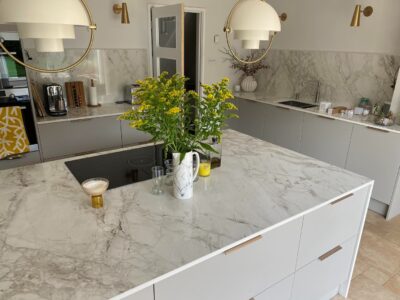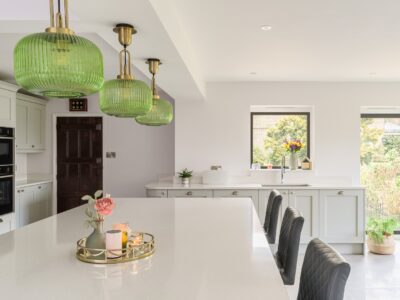Love the look of natural stone but want a work surface that requires minimal upkeep? Then a specially engineered quartz worktop could be ideal. Alongside stone-effect surfaces, we can also supply authentic metal and concrete-effect designs, plus sparkly and solid colour styles. Whichever you’d prefer, there are numerous colour and finish options to choose from, with all materials supplied by leading quartz brands. What’s more, our professional team is on hand to measure and install your chosen quartz countertop to ensure a perfect fit. Learn more below.

What are quartz worktops made from?
Engineered quartz is a manmade material fabricated by crushing natural quartz minerals and mixing them with resins, polymers and pigments. This enables the manufacturer to create a high-strength, custom-coloured composite material which can be moulded, compressed and heated to create slabs. These are sized and shaped to suit your available space, and once cooled, the hardened quartz stone worktops are extremely robust. As such, they’re unlikely to chip or crack, even when used daily – perfect for family homes and commercial kitchens.
Bespoke quartz kitchen worktops & more
Working with top quartz suppliers like Caesarstone, Classic Quartz and Brachot, we offer custom-made products for a range of interior applications. This includes luxury quartz kitchen worktops and bathroom countertops with integrated cut-outs for hobs and sinks. And thanks to its moisture-repelling qualities, we can also supply quartz splashbacks and wall cladding as an alternative to tiles. Have another idea in mind? Give us a call on 01273 526136 to find out what’s possible! Or visit our showroom to discuss your project and browse samples in person.
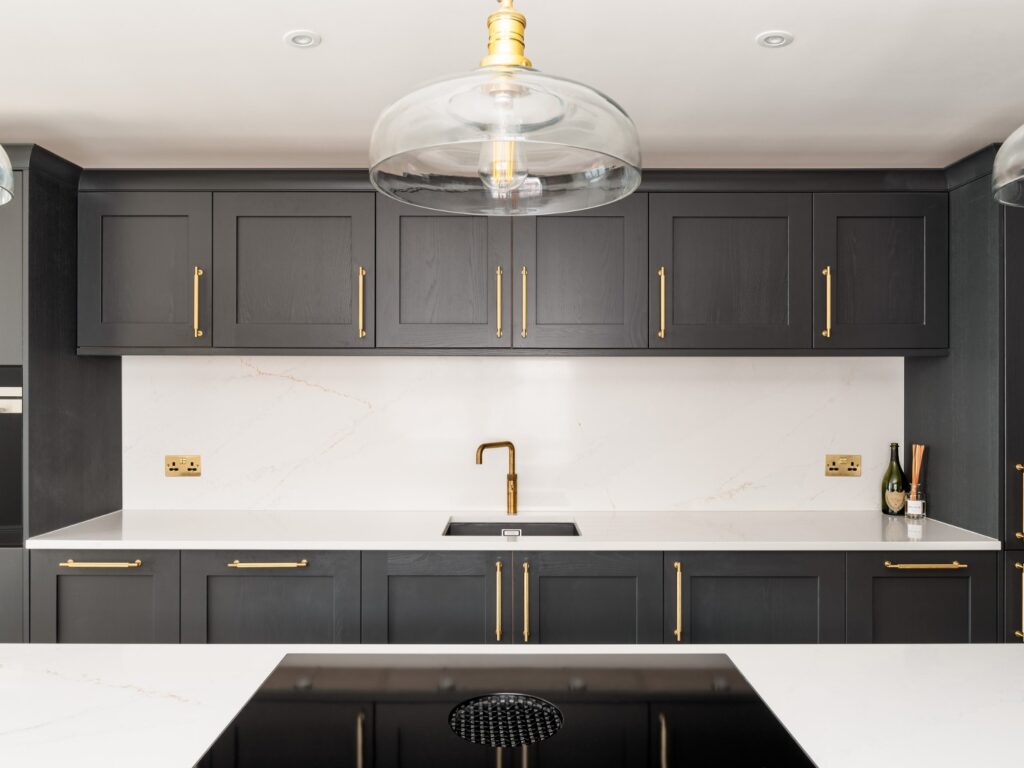
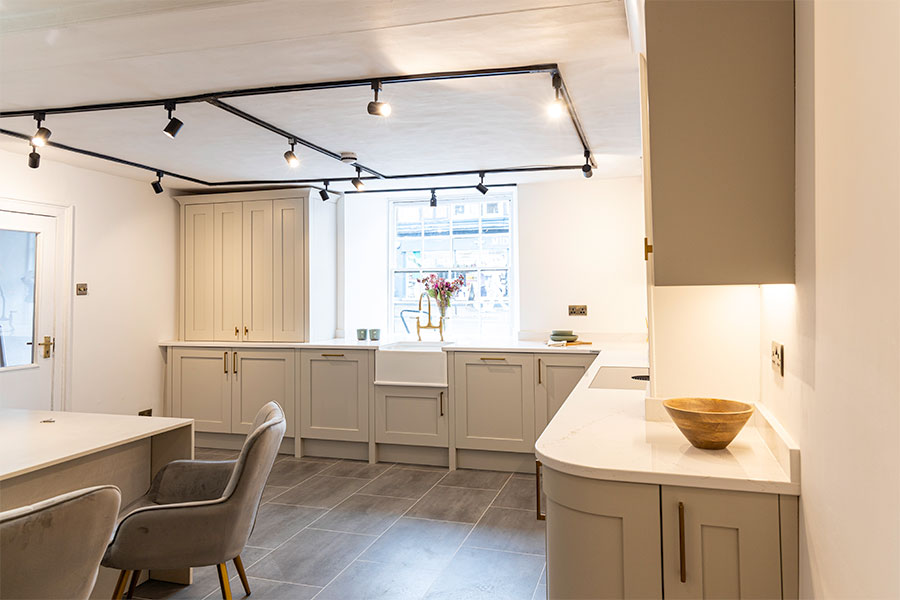
Bespoke quartz kitchen worktops & more
Working with top quartz suppliers like Caesarstone, Classic Quartz and Brachot, we offer custom-made products for a range of interior applications. This includes luxury quartz kitchen worktops and bathroom countertops with integrated cut-outs for hobs and sinks. And thanks to its moisture-repelling qualities, we can also supply quartz splashbacks and wall cladding as an alternative to tiles. Have another idea in mind? Give us a call on 01273 526136 to find out what’s possible! Or visit our showroom to discuss your project and browse samples in person.
Benefits of quartz worktops
- Durability: Quartz worktops are highly durable and resistant to scratches, stains and impact. They are less likely to chip or crack compared to natural stone alternatives.
- Low maintenance: They are non-porous, which means they are resistant to water, moisture and bacteria. They are easy to clean and do not require sealing or special maintenance procedures. Regular wiping with a mild detergent and water is usually sufficient.
- Aesthetics: They are available in a wide range of colours, patterns and finishes, allowing you to find a design that suits your kitchen décor. They can mimic the look of natural stone, such as marble or granite, while offering more consistent colour and pattern options.
- Heat resistance: They have good heat resistance properties and can withstand moderate heat without getting damaged. However, it is still advisable to use trivets or hot pads to protect the surface from direct contact with hot pans or utensils.
- Hygienic: The non-porous nature of quartz worktops makes them highly resistant to bacteria and other microorganisms. This characteristic makes them a hygienic choice for kitchens, as they are less likely to harbour germs or cause cross-contamination.
Disbenefits of quartz worktops
- Cost: Quartz worktops can be relatively expensive compared to other materials like laminate or solid wood. The cost varies depending on the quality, brand and complexity of the installation.
- Susceptible to heat damage: While they have good heat resistance, they are not entirely heat-proof. Extreme temperature changes, such as placing a hot pan directly on the surface or exposing it to high heat from appliances like grills or toaster ovens, can potentially cause damage like discoloration or cracking.
- Not completely natural: Some individuals prefer natural stone worktops like granite or marble, as they appreciate the unique variations and imperfections that occur in natural materials. Quartz worktops, while designed to resemble natural stone, may have a more uniform appearance, which may not suit everyone’s aesthetic preferences.
- Vulnerable to chemicals: Whilst engineered quartz is resistant to stains from common household items like coffee, tea or juice, they can still be damaged by certain chemicals. Avoid using harsh cleaners or solvents that can degrade the resin and affect the surface finish.
Choose your stone
The images below feature some of our recent quartz worktop installations. Click on the button below the images for a full gallery of recent installations which you can filter by material.

Request a sample

Request a sample

Request a sample

Request a sample

Request a sample

Request a sample
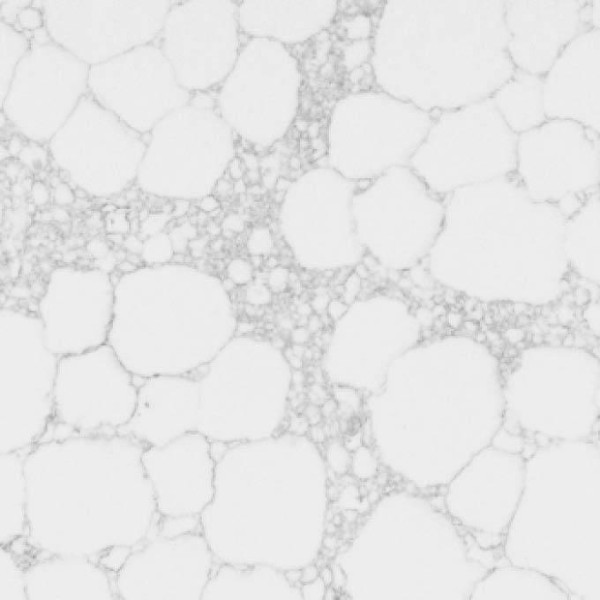
Request a sample

Request a sample
Our work
The images below feature some of our recent quartz worktop installations. Click on the button below the images for a full gallery of recent installations which you can filter by material.
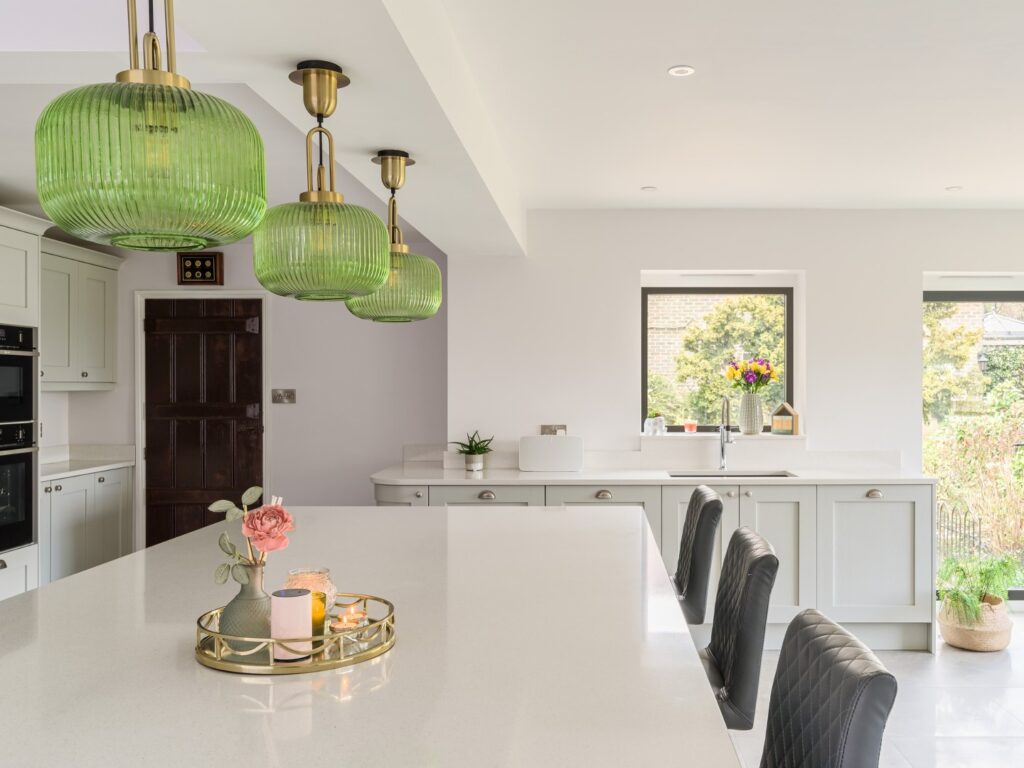


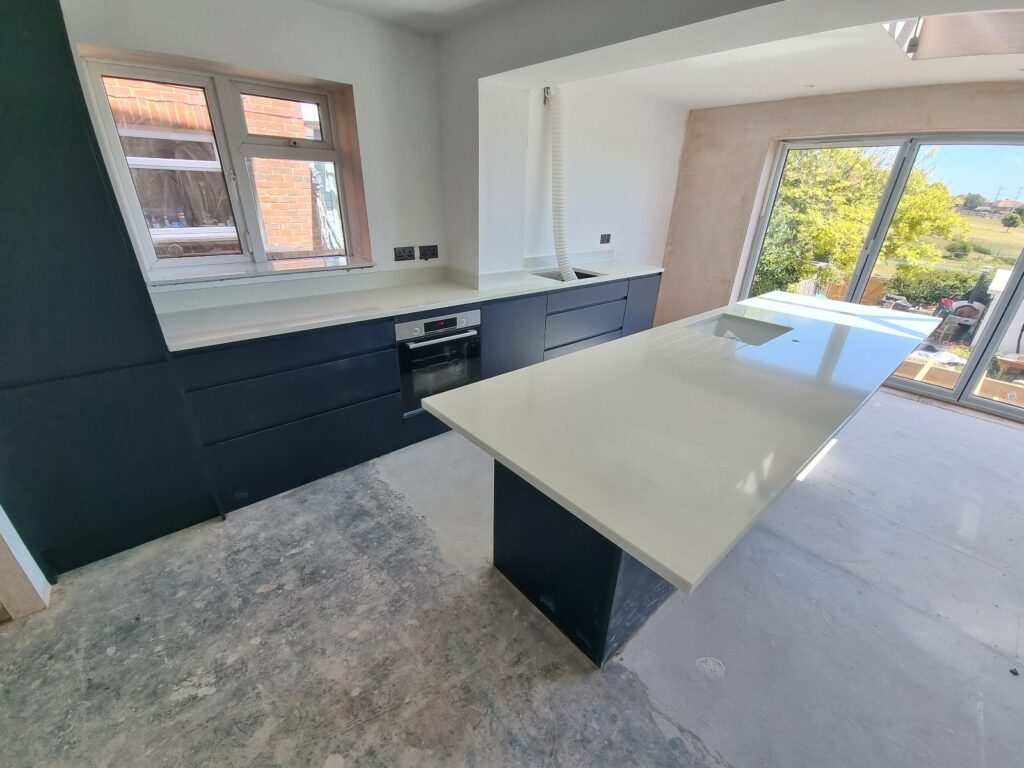
Frequently asked questions
What is the difference between quartz and quartzite?
Quartzite is an incredibly hard, naturally occurring mineral that is quarried along with other natural stones. Its strength, patterning and ability to withstand heat and scratches makes it a sought after material for worktops. However, unlike quartz which is specially formulated to repel liquids, quartzite is porous and susceptible to stains. With that in mind, it must be sealed periodically to prevent unwanted marks and needs more careful maintenance than quartz.
Are quartz worktops safe for use in homes?
Certain health issues have recently been linked to manufactured quartz worktops, which has in turn raised concerns for homeowners. However, these problems are related solely to the cutting and fabrication of the material, due to the resulting silica dust. As such, countertops and other surfaces installed in people’s homes pose no danger to human health. Our partner suppliers also use enclosed cutting machines and specialist PPE to protect their staff.
Can Sussex Stoneworks measure and install my quartz worktop?
Yes! At Sussex Stoneworks, we offer a fully rounded quartz worktop service including initial templating, sourcing and final installation. This is available to customers across the southeast and London, including those in Surrey, Sussex, Hampshire and the surrounding areas.
Home survey visits usually take place within 14 days of placing your order, during which we’ll use laser technology to take accurate measurements. Our trusted fabricators will then feed this information into specialist cutting machinery to produce a perfectly sized work surface.
Manufacturing lead times are around one week upon completion of the survey, with all cutting and finishing completed prior to delivery. We can then deliver and install your quartz countertop and any other products whenever suits you best! Contact us now for a no-obligation quote or read more about our measuring and fitting service here.
Any questions?
We’re here to help! Use the buttons below to request a sample, drop us an email or make an appointment at our showroom. We look forward to hearing about your project.




